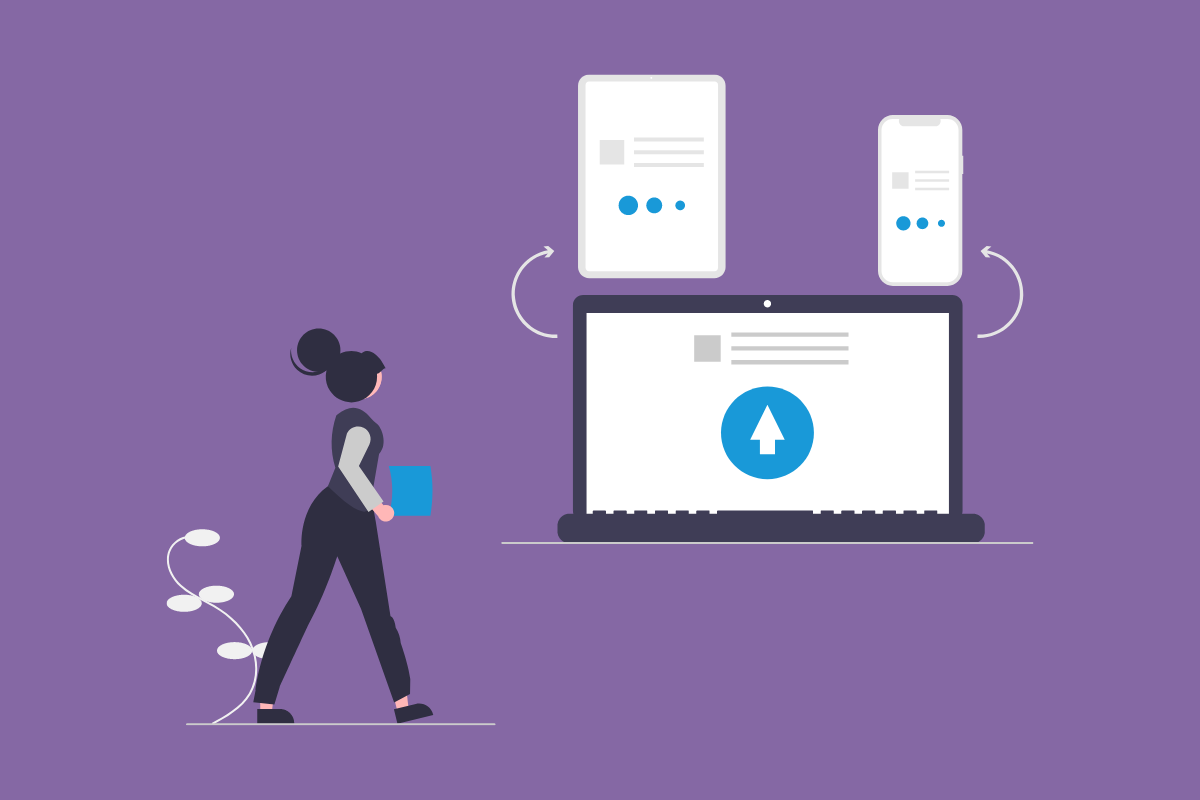The growth of mobile users is undeniable. In total, the number of people that own a smart phone is 7.26 Billion, making up 91.00% of the world’s population. Moreover, the average person spends 3 hours and 15 minutes on their phone each day. And 1 in 5 smartphone users spends upwards of 4.5 hours on average on their phones every day. This demonstrates the obvious reasons why businesses should consider how mobile technology could benefit their business operations. This blog post will explore why you would develop an app and highlights the many benefits in doing so.
Constant Access to the Customer
A mobile app is installed on the user’s mobile device so the app can push offers, reminders and other notifications to the user. Unlike websites where the user must actively go to the website, mobile apps can constantly be communicating with the user and be offering value, online and offline.
Workplace Accessibility
One of the main benefits of mobile app workplace accessibility is the ability for employees to access important work-related information and tools from anywhere, at any time. This can improve productivity and collaboration, as well as allow for more flexible and remote working arrangements. Additionally, mobile app workplace accessibility can help to streamline business processes and improve communication and coordination among team members. This can ultimately lead to increased efficiency and effectiveness within the organisation.
User Experience
Compared to websites that users must access using on a mobile web browser, mobile applications offer a more participatory experience. This enables businesses to provide material that is not currently accessible on their website. Additionally, they might have competitions or games where users can win rewards.
Mobile apps give businesses the chance to connect with a far bigger audience than websites alone do because more people own smartphones. Since the majority of applications are free to download, anyone, regardless of their financial situation, can utilise them.
Due to the fact that users can make purchases or pay subscription fees to access particular features or content, mobile apps are typically more profitable for companies than websites. While sales on websites are typically restricted to one-time purchases, subscription-based revenue is a common form of ongoing money for apps.
Brand Recognition
As users have such high screen time and even though your app may not make up a large portion of that screen time. The fact that each user must unlock, scroll, and scan their device in order to find the apps they’re seeking will mean your brand is still seen. Being “in the way” can work to your company’s favor because our minds unconsciously record every image, piece of text, or well-designed app icon that it encounters.
Customers will be more motivated to purchase your goods and/or service sooner if you can engage them with your app on a regular basis. This is referred to as the “effective frequency” in advertising; as a general guideline, hearing and/or seeing your brand 20 times will get you recognised.
Marketing
With its user-friendly and intuitive support, mobile apps let businesses sell themselves while they are on the road. An app with a wide range of features offers businesses special value propositions.
Having a mobile app puts all the information you want to give your customers—including exclusive specials and promotions—at their fingertips, which is one of the major advantages. Push notifications allow you to easily remind clients about your goods and services whenever it makes sense, bringing you even closer to a direct engagement. This is also a relatively cheap way of marketing compared to other methods.
Brand Loyalty
Mobile applications assist in informing the administrator of the users’ interest in particular deals and goods. Additionally, it helps management committees create tailored brand loyalty programs for users.
An effective example of one of the most successful app customer loyalty programs is Starbucks. Their points system encourages users to continuously use the app. The accumulated points can be used for not just coffee but their food and merchandise too. Other effective ways the encourage app use is through birthday promotions and regular competitions.
Offline Access & Storage
Ability, unlike a website, to give the user access to data and services whilst not connected to the Internet. Also the ability to store data on the clients device such as tickets, vouchers, loyalty cards, etc.
Conclusion
In the first quarter of 2022, there were 37 billion app downloads worldwide, and $33 billion was spent on apps by consumers, according to a data.ai report. This further illustrates businesses needs to utilise mobile app technologies.
From a business point of view, when developing any app it is important to ask yourself whether the app is going to make you money or save you money. Otherwise it’ll not be worth your time. We have developed an app Quilder. This was developed as a free estimate software for tradesmen. This management system allows users to manage their paperwork and save time and money by creating quotes, estimates and shopping lists with ease.
Moreover, when considering app development you should consider how it will evolve over the next decade. We are seeing more of a push towards smart wearables, virtual and augmented reality.
Learn more about the digital transformation solutions provided at Pulsion. Our team has extensive experience in mobile app development. This ensures we are perfectly placed to understand your project and offer the most appropriate solution. Partnerships with Amazon Web Services and Microsoft ensures we are able to offer the best technology solution for your needs.
We would be happy to discuss your digital needs with you, it’s what we do, so get in touch!









